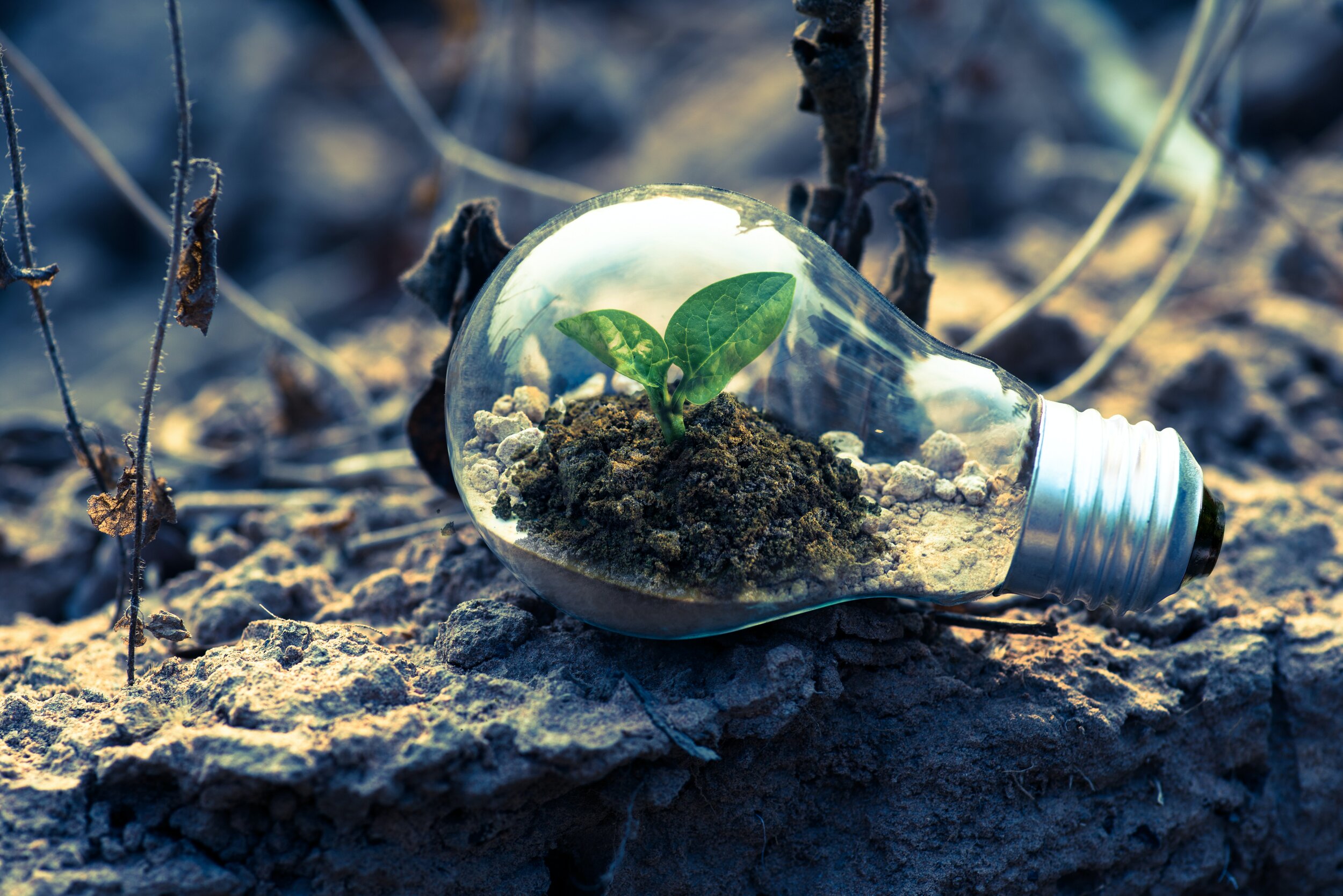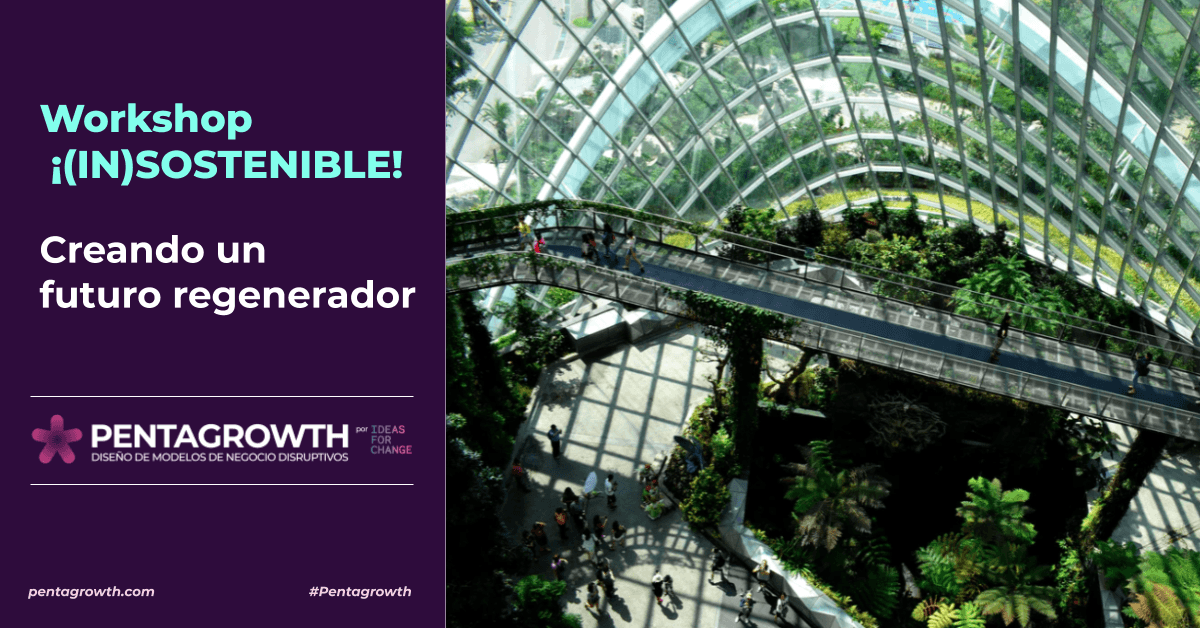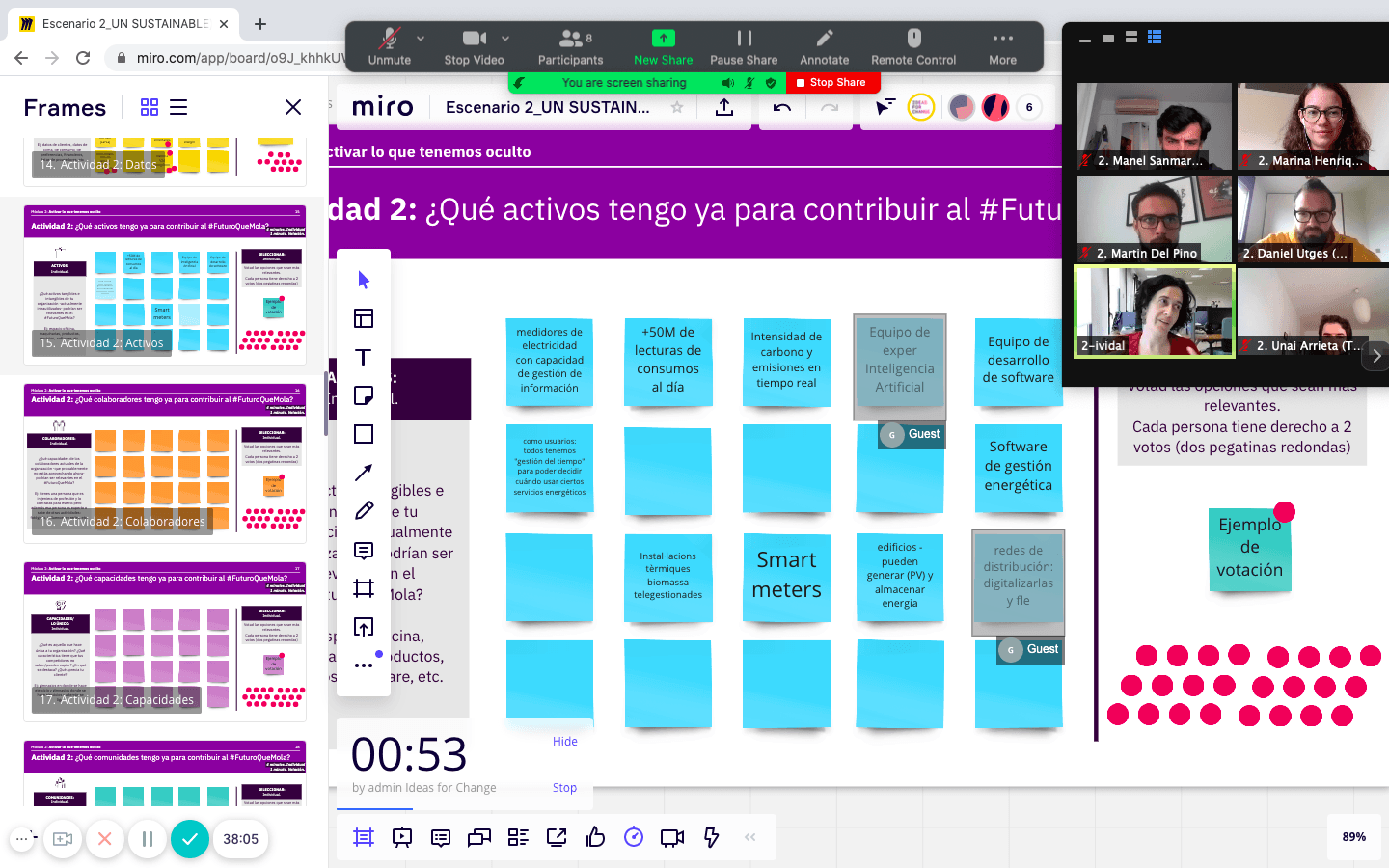Disruptive businesses
Disruptive businesses
Exponential Day #3: (UN)SUSTAINABLE! Creating a regenerative future
Exponential Day #3: (UN)SUSTAINABLE! Creating a regenerative future
18 de noviembre de 2020


By the editorial team. (Original publication in Spanish)
It is clear that our current model does not fit with the capacity of the Earth. We do not value the natural resources that it offers us. A clear example of this situation occurred when the water supply to my building was cut off for several hours while I was working from home. Suddenly, I had to fill buckets with water to ensure I had enough to get through the day. I thought I valued water, but until recently, I hadn't realised just how much I depend on this resource. And this was just one day of my life. The reality is very different in places like Cape Town or Cochabamba, among others.
On 21 October, the event "¡(UN)SUSTAINABLE! Creating a Regenerative Future" took place, the third edition of ACCIÓ Exponential Day. We also collaborated in the previous one, addressing the new (in)mobility emerging from the Covid-19 crisis. On this occasion, we placed special emphasis on the circular economy, on how to build a resilient and regenerative future.

A multidisciplinary round table
During the day, a debate was held on sustainability and disruptive innovation between the director and founder of Ideas for Change, Javi Creus, and the co-founder and co-CEO of Ship2B, Clara Navarro. During the stimulating conversation, Creus recalled that, at the Observatory of Emerging Capabilities, it has been observed how both organizations and society have transformed during these difficult times. In fact, reinventing oneself is necessary to be resilient.
Furthermore, five experts in the field of sustainability shared their views on key topics:
Blue spaces: Eugeni Castejón, founder of Clean Rivers HUB, introduced the idea that blue spaces, like rivers, should be thought of as a system: from the land where it begins to the ocean, sea, reservoir, or estuary where it expands.
Civic action! Sònia Ruiz, founder of NOIMA, highlights three key roles that citizens play in their daily lives: the management of resources and data, the proposal and participation through activism, acting as prosumers, and demanding sustainable consumption models.
Energy, presented by Carlota Pi, founder of HolaLuz, must shift from an investment approach to one of savings, both for the planet and its users.
The expert in industrial symbiosis, Verónica Kuchinow (Símbiosy), predicts the next industrial revolution of the circular economy: the redesign of materials so that markets and opportunities can be created from waste and underutilised resources.
Waste: Last but not least, Xavier Marin (DAN*NA) argues that a local diet makes sense beyond zero-kilometre consumption because it generates raw materials for the local industry, namely bioplastics.

Thirteen scenarios for a regenerative future
Following our methodology Pentagrowth for designing disruptive business models, 100 participants gathered in a practical virtual workshop to address the thirteen scenarios presented. Among them: the assessment of opportunities that will arise when there is a surplus of renewable energy, the promotion of regenerative agriculture, how to design waste-free products from the start, why it is important to position citizens as the main actors in advancing society's agenda, or improving biodiversity, fighting against microplastics.
An open platform for managing green energy, a market for surplus goods, and mobility alternatives that save environmental and economic costs were some of the ideas that emerged in this two-and-a-half-hour workshop.
Do you have ideas you would like to develop? Dare to design future scenarios where business models make a greener, sustainable, and circular world possible using the Pentagrowth methodology.
By the editorial team. (Original publication in Spanish)
It is clear that our current model does not fit with the capacity of the Earth. We do not value the natural resources that it offers us. A clear example of this situation occurred when the water supply to my building was cut off for several hours while I was working from home. Suddenly, I had to fill buckets with water to ensure I had enough to get through the day. I thought I valued water, but until recently, I hadn't realised just how much I depend on this resource. And this was just one day of my life. The reality is very different in places like Cape Town or Cochabamba, among others.
On 21 October, the event "¡(UN)SUSTAINABLE! Creating a Regenerative Future" took place, the third edition of ACCIÓ Exponential Day. We also collaborated in the previous one, addressing the new (in)mobility emerging from the Covid-19 crisis. On this occasion, we placed special emphasis on the circular economy, on how to build a resilient and regenerative future.

A multidisciplinary round table
During the day, a debate was held on sustainability and disruptive innovation between the director and founder of Ideas for Change, Javi Creus, and the co-founder and co-CEO of Ship2B, Clara Navarro. During the stimulating conversation, Creus recalled that, at the Observatory of Emerging Capabilities, it has been observed how both organizations and society have transformed during these difficult times. In fact, reinventing oneself is necessary to be resilient.
Furthermore, five experts in the field of sustainability shared their views on key topics:
Blue spaces: Eugeni Castejón, founder of Clean Rivers HUB, introduced the idea that blue spaces, like rivers, should be thought of as a system: from the land where it begins to the ocean, sea, reservoir, or estuary where it expands.
Civic action! Sònia Ruiz, founder of NOIMA, highlights three key roles that citizens play in their daily lives: the management of resources and data, the proposal and participation through activism, acting as prosumers, and demanding sustainable consumption models.
Energy, presented by Carlota Pi, founder of HolaLuz, must shift from an investment approach to one of savings, both for the planet and its users.
The expert in industrial symbiosis, Verónica Kuchinow (Símbiosy), predicts the next industrial revolution of the circular economy: the redesign of materials so that markets and opportunities can be created from waste and underutilised resources.
Waste: Last but not least, Xavier Marin (DAN*NA) argues that a local diet makes sense beyond zero-kilometre consumption because it generates raw materials for the local industry, namely bioplastics.

Thirteen scenarios for a regenerative future
Following our methodology Pentagrowth for designing disruptive business models, 100 participants gathered in a practical virtual workshop to address the thirteen scenarios presented. Among them: the assessment of opportunities that will arise when there is a surplus of renewable energy, the promotion of regenerative agriculture, how to design waste-free products from the start, why it is important to position citizens as the main actors in advancing society's agenda, or improving biodiversity, fighting against microplastics.
An open platform for managing green energy, a market for surplus goods, and mobility alternatives that save environmental and economic costs were some of the ideas that emerged in this two-and-a-half-hour workshop.
Do you have ideas you would like to develop? Dare to design future scenarios where business models make a greener, sustainable, and circular world possible using the Pentagrowth methodology.


